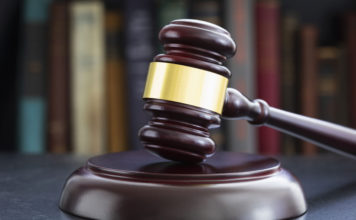I’d like to start this piece with a quote: “In 2023, we must come together again in partnership for the planet. Businesses, governments and civil society are equally responsible for taking action against the climate crisis and lighting the spark to accelerate change towards a green, prosperous and equitable future. We must join together in our fight for the green revolution, and for the health of future generations. The time is now to ‘Invest In Our Planet,’” said Kathleen Rogers, president of earthday.org.
As we approach the 53rd annual Earth Day on April 22, Salinas Valley Recycles (SVR) and I have been reflecting on the changes that have occurred over the past few years and what that means to the community and people we serve.
SVR has been living this mantra stated by Rogers since its inception, and continues to be compelled to join the world in promoting this theme. We look forward to a day that burying waste is more expensive and less desirable than any other form of resource management, and we continue to promote a future without landfills.
The new state organics law (SB 1383) requires a whole new approach to discarding food scraps with a goal of reducing the amount of organics going into landfills by 75% by 2025. SVR and our member cities have been hard at work behind the scenes preparing and developing programs to meet these new mandates.
SVR Operations and Engineering teams prepared the facility to accept materials, while the Resource Recovery team built out programs for customers to easily separate food scraps for composting, including institutions like schools. The composting facility in Gonzales has been gearing up over the past few years to accept all the food scraps and yard waste from our community with the help of a new commercial composter, Atlas Organics.
As you may know, landfills are as expensive as they are unsustainable to our planet. In 2021, landfill module #7 was constructed at the Johnson Canyon Landfill and began accepting trash to keep up with the influx being brought to us over the past few years. That space came with a price tag of a whopping $4.65 million, and at the current rate that trash is being brought in, this cell will be at capacity in seven years.
However, the cost doesn’t just stop there. We as a community pay for maintenance of the landfill for the next 30 years. That means our waste will survive many generations into the future and it must be continually monitored and maintained to protect the surrounding environments of closed landfills.
SVR is committed to maintaining the maximum landfill space for its service area by not accepting any waste from outside of the area for disposal and investing in resource recovery initiatives. Sustainably financing its operations with locally derived revenues and without relying on imported waste, and all the long-term community liabilities that come with it, continues to be a top priority for SVR.
At current rates, our landfill has about 45 more years of capacity left. We will continue to increase recycling and diversion of waste from the landfill and research other available technologies to preserve this important community asset and avoid building any new landfills.
Exploring new technologies that can further reduce waste going to our landfill remains a cornerstone for SVR planning and action in the coming year. Advances in organics waste recovery technology, energy production from organic materials, new recycling ventures and expanding our current recycling/processing capacities will bring new opportunities for jobs, local economic benefits and community engagement.
The most significant change for SVR and customers this past year was the closure of the Sun Street Transfer Station in Salinas. Since 2008, SVR has been focused on the relocation of the Transfer Station operations to support the City of Salinas’ desire for redevelopment of the Alisal Market Place.
After many starts and stops, the City of Salinas facilitated the move of SVR’s Recycling and HHW services from the Sun Street facility to the privately owned and operated Republic Services Madison Lane Transfer Station in September 2022. In lieu of the closure, SVR opened the Madison Lane Recycling Center and Household Hazardous Waste (HHW) Collection Facility, located at 1104 Madison Lane, just outside of Salinas in the Boronda community. This facility is up and running, and SVR looks forward to continuing to serve customers at this new location.
With the completion of the Gloria Road/Iverson/Johnson Canyon Road Pavement Reconstruction Project, SVR was awarded a 2020 Transportation Excellence Award from TAMC. The $7 million project was made possible by the unique collaboration of a multi-agency team representing the County of Monterey RMA-Public Works, City of Gonzales, SVR, Granite Construction and Harris & Associates. Working together, this team raised project funding, oversaw the design and bidding, and reconstruction of 5 miles of pavement along the critical access route to the regional landfill.
Also, SVR is now the proud owner of its administrative offices building, which had previously been leased. The purchase allows SVR to rent out the other two spaces in the building and will be a significant cost savings in the long run. In addition, the new space will have a large meeting room that we hope will be used as a community meeting space for other agencies and community engagement groups.
What’s more, SVR is in the process of building an exciting new community education center at Johnson Canyon. The space will be a hub for tours, composting workshops, community events and more. To be completed with a large meeting room, an exhibit hall and an exploration garden, it will provide a foundation for SVR’s vision to provide a robust learning experience to our community. We look forward to enrolling members of the community to help bring this vision to life, and to see everyone reap the benefits of the knowledge and empowerment this space will bring.
SVR has always been committed to “Investing In Our Planet and People,” which is especially relevant to this year’s Earth Day, and the past few years of throttling change can vouch for that commitment. SVR and I deeply thank fellow Board members for the support and direction to continue our mission in promoting a future without landfills.
To customers, keep up the hard work in decreasing and eliminating waste that enters the landfill.
Find out more about SVR and how you can help by visiting SalinasValleyRecycles.org.
Chris Lopez was elected to the Monterey County Board of Supervisors in June 2018 and represents the Third District, which covers portions of Salinas and the entire southern Monterey County region. He may be contacted at di*******@************ca.us.














